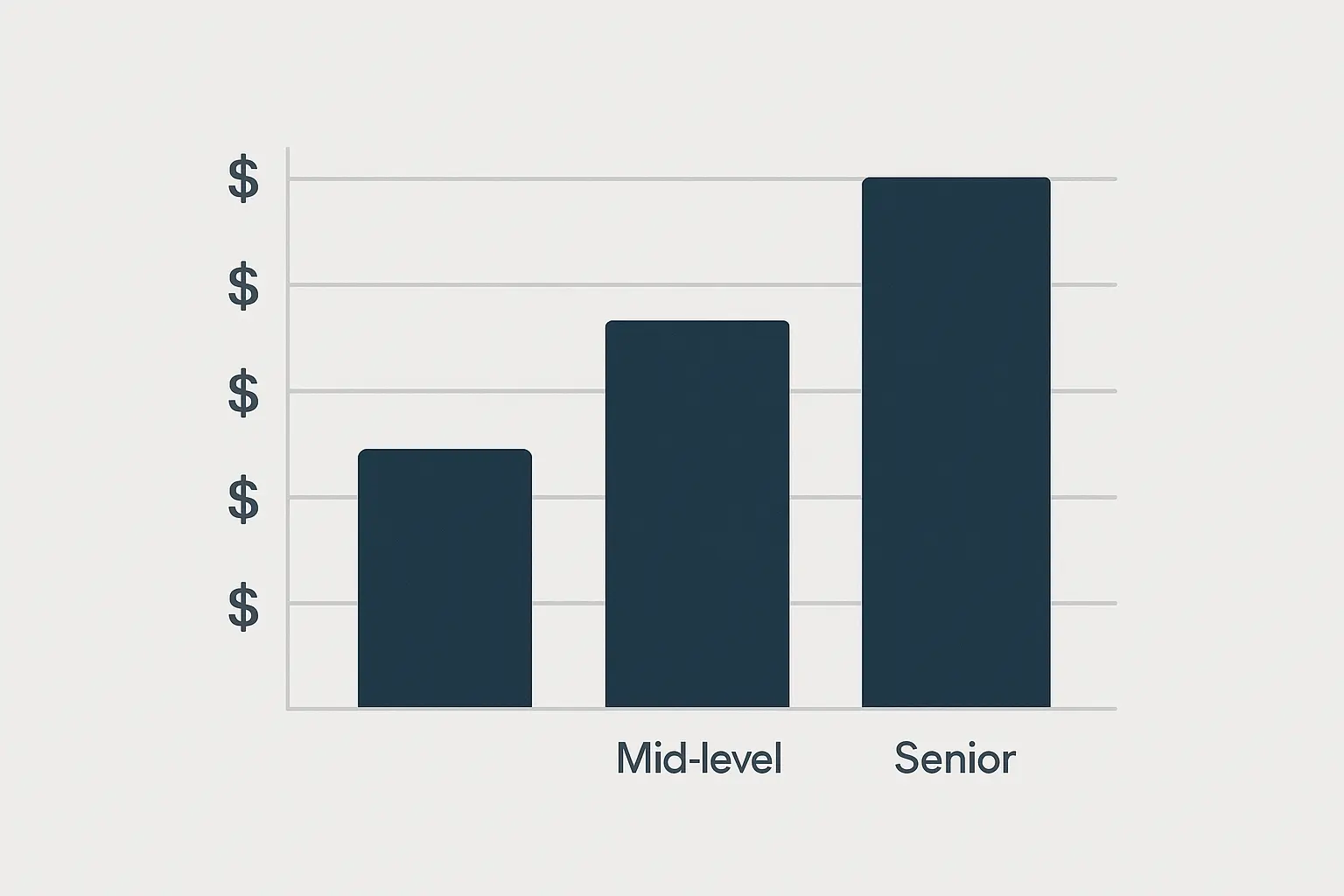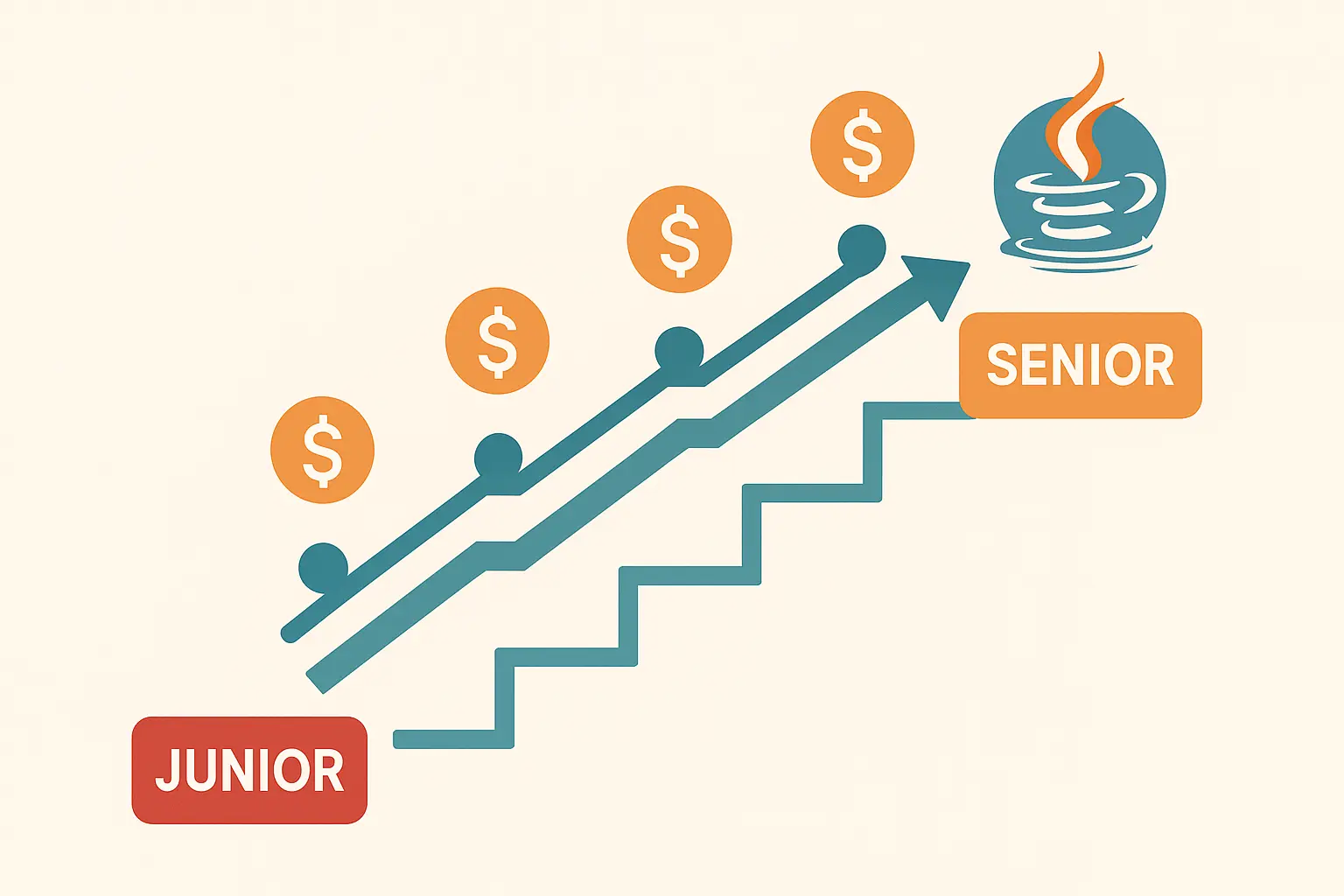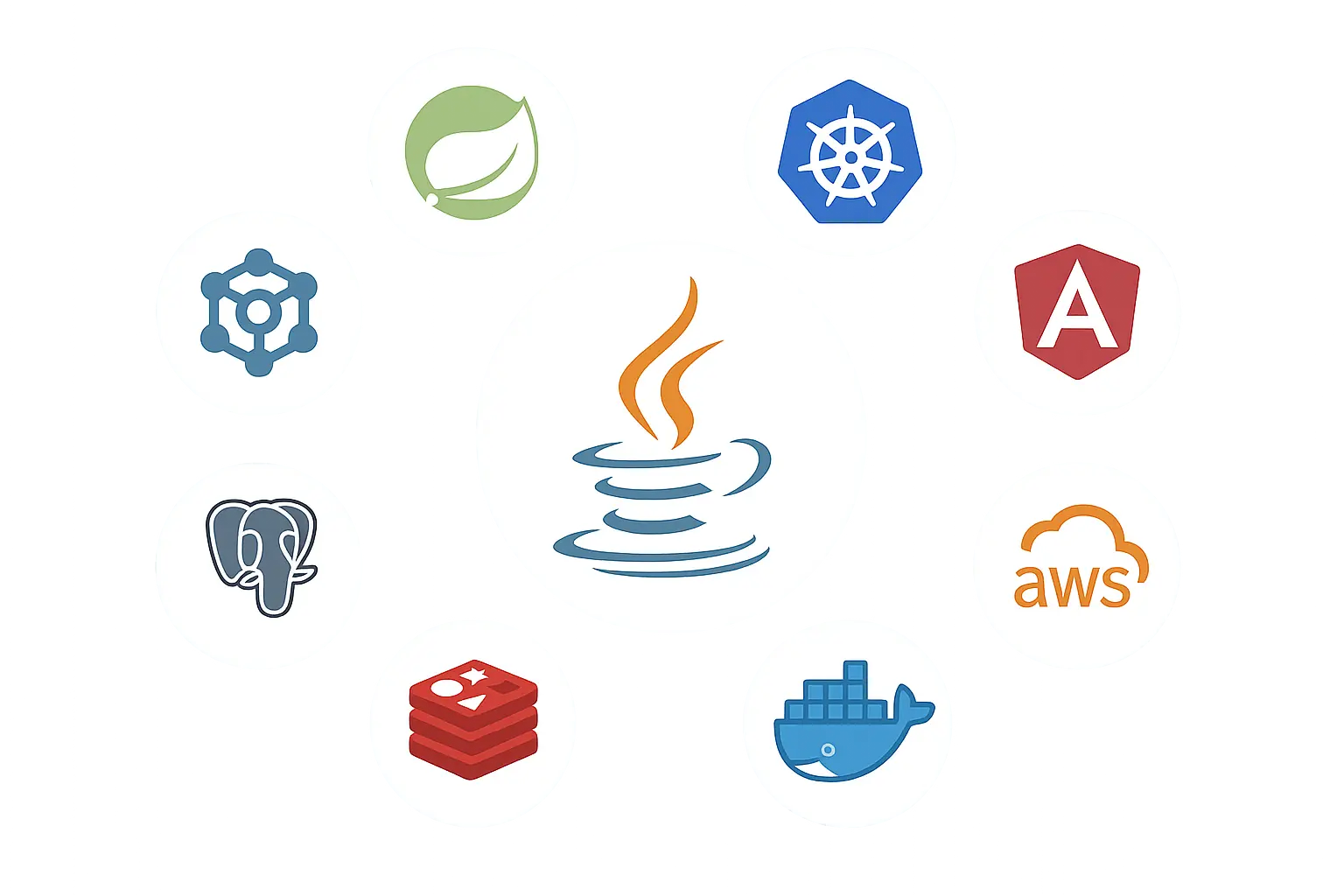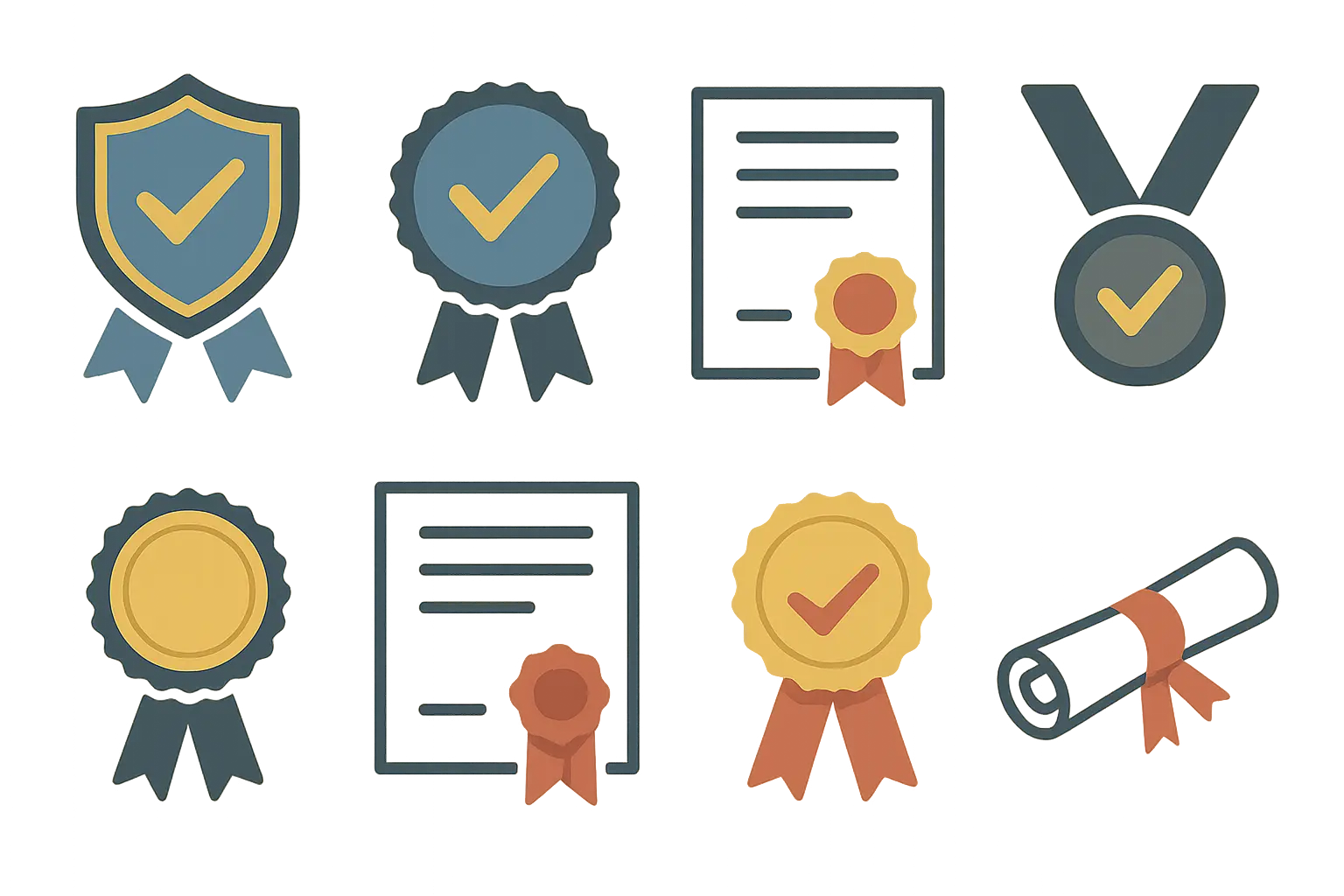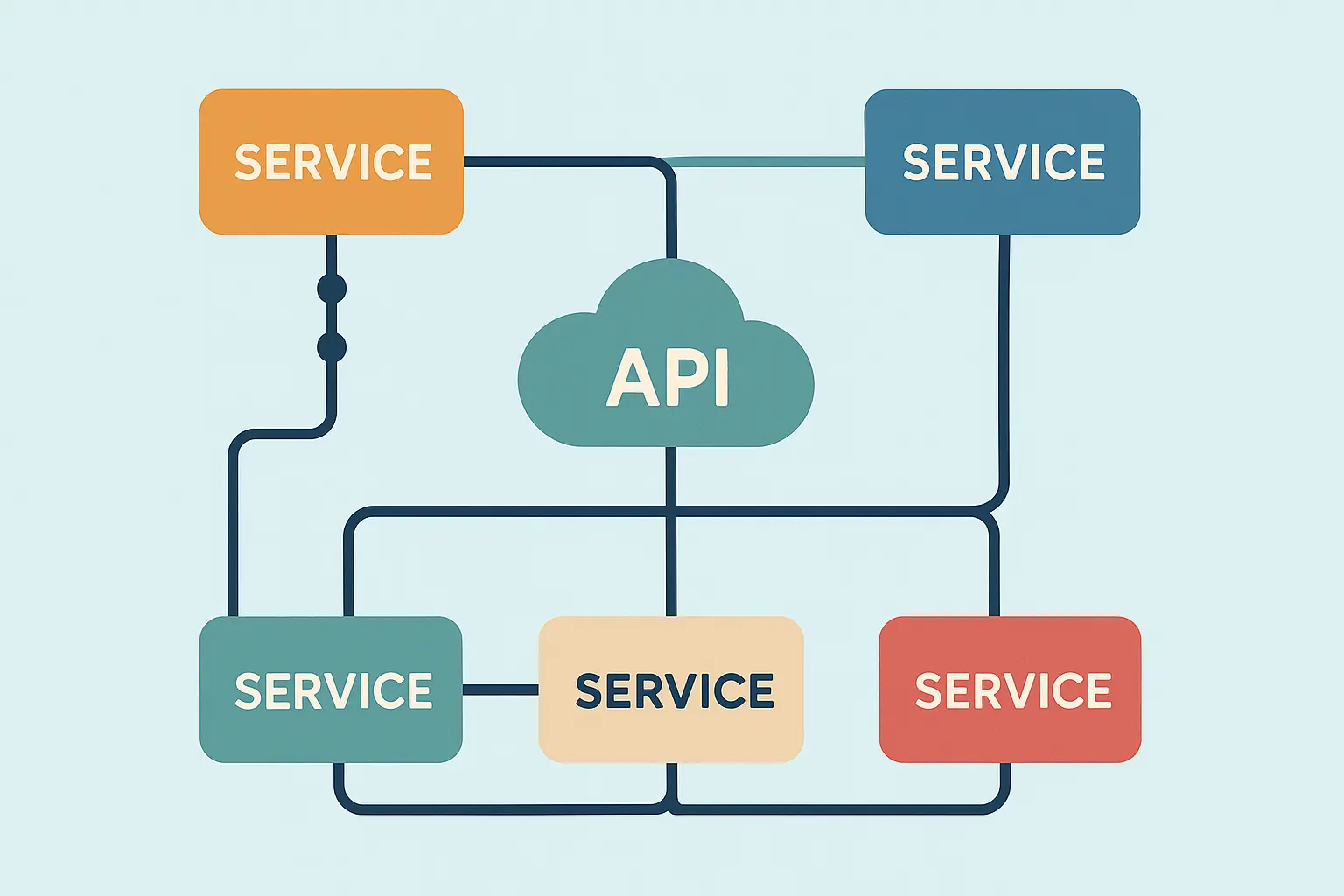Five years ago, I had no idea what I was worth as a Java developer. I took my first job at $68K thinking I’d hit the jackpot. Spoiler alert: I was leaving $20K on the table.
The Java developer job market continues to thrive, with Built In reporting an average total compensation of $190,532 for Java developers in the US, including base salary plus additional cash compensation. But here’s what those numbers don’t tell you – understanding your worth goes way beyond just knowing the averages.
The Real Numbers (No BS Version)
When I started researching pay scales, I was shocked by how much variation exists even among developers with identical backgrounds. Two people with the same experience can earn vastly different amounts based on factors most people never consider.
Here’s the reality: Java developer salaries range from $65K-$85K for beginners to $200K+ for architects. But location, specialization, and how you negotiate make all the difference.
Geographic location still matters, though remote work has started to blur these lines. Experience levels create predictable tiers, but the real money comes from strategic specialization and knowing your worth.
Location: The Good, Bad, and Expensive
Look, everyone knows San Francisco pays more. But here’s what the salary sites don’t tell you – that extra 30% disappears pretty fast when you’re spending $4,000 on a studio apartment.
According to Simplilearn’s 2024 analysis, “The cities like San Francisco, Chicago and Remote in US provide 25% to 31% of additional compensation to their employees (Java developer) as compared to National Average Salary.”
Here’s the reality check nobody talks about: that $150K San Francisco salary? After rent and taxes, you’re living like someone making $85K in Austin.
|
City |
Average Salary Range |
What It Actually Feels Like |
|---|---|---|
|
San Francisco |
$130,000 – $160,000 |
Like making $79K-$97K elsewhere |
|
New York City |
$120,000 – $150,000 |
Like making $71K-$89K elsewhere |
|
Seattle |
$115,000 – $145,000 |
Like making $67K-$84K elsewhere |
|
Austin |
$105,000 – $130,000 |
Actually feels like good money |
|
Chicago |
$100,000 – $130,000 |
Solid middle-class living |
Industry Matters More Than You Think
Financial services companies, healthcare tech firms, and enterprise software companies typically offer the highest compensation. Startups might lowball your base salary but throw equity at you that could be worth millions or nothing.
Government and non-profit sectors pay less but won’t make you work weekends. Recent trends show that financial services firms are increasingly hiring product managers and full-stack developers, with “more than 500 product managers hired across major US investment banks in the past year according to LinkedIn.”
Remote Work Changed Everything (Sort Of)
The shift to remote work created more standardized national pay scales. This is huge for developers in lower-cost areas who can now access Silicon Valley salaries without the $3,500/month rent.
Sarah, a Java developer in Kansas City, leveraged remote opportunities to secure a $140K position with a San Francisco-based fintech company. By avoiding SF rent prices, she effectively doubled her purchasing power while keeping the same high salary.
But some companies still adjust pay based on location, so understand each employer’s approach before you relocate to a cheaper city.
Your Experience Level: What to Expect
Java developer compensation follows predictable patterns, but specialization can accelerate growth beyond typical increases. Motion Recruitment’s 2025 data shows that “Java Developer salaries grew year-over-year on average by 7.8%, one of the largest pay jumps in tech in 2024.”
Breaking In: The $65K-$85K Reality
New Java developers with 0-2 years of experience typically start between $65K-$85K. Computer science degrees help with negotiations, but bootcamp graduates can catch up quickly with solid portfolios.
Entry-level developers often benefit from understanding different types of degrees and how they impact starting salary negotiations in the competitive market.
What Actually Gets You Hired:
-
Oracle Java certification (seriously, get this)
-
3-5 portfolio projects that actually work
-
Basic Git knowledge (you’d be surprised how many skip this)
-
SQL fundamentals
-
Ability to explain your code without sounding like a robot
The Mid-Level Sweet Spot: $85K-$120K
Developers with 3-7 years of experience typically earn between $85K-$120K. This is where specialization starts paying off. Spring Framework expertise, microservices experience, or cloud platform skills push you toward the higher end.
I’ve noticed developers who build depth in specific areas during this phase set themselves up for bigger jumps later.
Negotiating Without the Awkwardness
Most developers underestimate their market worth and miss opportunities for significant increases. The key is doing your homework and showing concrete value.
Mike documented that his code optimizations reduced application load times by 40% and decreased server costs by $15,000 annually. When negotiating his raise, he presented these metrics and secured a $12,000 increase – directly tying his value to business impact.
Before Any Salary Conversation:
-
Research specific ranges for your skills and location
-
Document your wins with actual numbers
-
Time it right (after successful projects, during reviews)
-
Practice explaining your value without sounding desperate
Skills That Actually Boost Your Paycheck
Want to boost your paycheck? Focus on two things: Spring Framework and cloud platforms. Master Spring Boot and AWS, and you’re looking at an extra $15-25K. I’ve seen developers make this jump in six months.
When I analyze compensation data, the patterns become clear – specialized skills consistently outperform generalist approaches.
Spring Framework: Your Golden Ticket
Expertise in Spring Boot, Spring Security, and Spring Cloud can add $10K-$20K to base salaries because these frameworks are essential for enterprise development. Companies invested in Spring actively seek developers who can hit the ground running.
Spring Learning Path That Actually Works:
-
Master Spring Boot fundamentals first
-
Learn Spring Security (authentication is everywhere)
-
Understand Spring Data JPA for database operations
-
Explore Spring Cloud for microservices
-
Build one complete application using the entire ecosystem
-
Get the Spring Professional certification
Cloud Skills Are Non-Negotiable
Java developers skilled in AWS, Azure, or Google Cloud integration earn premium salaries due to widespread enterprise cloud migration. These aren’t nice-to-have skills anymore – they’re baseline requirements.
Cloud expertise also opens doors to DevOps roles that often pay more than traditional development. Professionals advancing to cloud-focused roles often need to showcase their credentials properly, and understanding business certification requirements becomes crucial for career progression.
|
Cloud Platform |
Salary Premium |
Key Java Skills |
|---|---|---|
|
AWS |
+$15K-$25K |
Lambda, ECS, RDS, S3 |
|
Microsoft Azure |
+$12K-$22K |
App Service, Functions, Cosmos DB |
|
Google Cloud |
+$10K-$20K |
App Engine, Cloud Functions, Firestore |
Leadership: Where the Real Money Lives
Here’s where the real money is: leading people. My salary literally doubled when I moved from coding to managing a team. But here’s what nobody warns you about – you’ll spend more time in meetings than writing code.
Technical leadership positions often double base developer salaries, but they require both deep technical expertise and soft skills. Communication and mentoring become as important as coding ability.
Technical Lead: Your First Step Up ($120K-$160K)
Java technical leads who manage small teams while maintaining hands-on coding typically earn between $120K-$160K. This role bridges individual contributor and management, requiring both technical depth and people skills.
It’s the natural progression for senior developers who want more impact and compensation.
Solutions Architect: The Big Leagues ($140K-$200K+)
Senior developers who transition to solutions architect roles can earn $140K-$200K+ by designing enterprise systems and making high-level technical decisions. These positions require understanding business requirements, technology constraints, and long-term planning.
The role combines technical expertise with business acumen, making it one of the highest-paid paths.
Engineering Manager: Leading People ($130K-$180K)
Java developers who move into people management maintain competitive salaries while developing new skills in team leadership and strategic planning. This path requires shifting focus from writing code to enabling others to write better code.
Jennifer transitioned from Senior Java Developer ($110K) to Engineering Manager ($155K) by volunteering to mentor junior developers and leading cross-functional projects. She spent six months developing management skills before formally applying for the position.
Strategic Moves That Actually Work
Three moves that actually work: Switch companies every 2-3 years, jump industries (fintech pays crazy money), and don’t be afraid to take a title bump even if the salary increase is small.
The most successful developers treat their careers strategically, making moves that position them for long-term success rather than optimizing for short-term comfort.
Certifications: Worth It or Waste of Time?
Oracle Java certifications and AWS certifications can justify salary increases of $5K-$15K, particularly when aligned with employer technology stacks. They’re most valuable early in your career or when transitioning to new specializations.
The value varies significantly by company, but certifications help with initial resume screening and provide concrete evidence of expertise.
Advanced Degrees: The ROI Question
Master’s degrees in computer science can accelerate salary growth and open doors to senior roles, though practical experience often carries equal weight. The decision depends on your career goals and whether your target companies value advanced degrees.
When considering advanced education, many professionals evaluate the cost of a college degree against potential salary increases in the competitive market.
Company Size: Big Fish vs. Small Pond
Large enterprises typically offer higher base salaries and comprehensive benefits, while smaller companies provide equity upside and faster advancement. The choice depends on your risk tolerance and career stage.
Many successful developers alternate between large and small companies throughout their careers to maximize both learning and earning opportunities.
What’s Coming Next
The game is changing fast. Five years ago, knowing Java was enough. Now? You better know Docker, Kubernetes, and probably some Python too.
However, industry trends show challenges ahead. Recent reports indicate that “bog standard full-stack java developers” are becoming less competitive, with top applicants now expected to have “python too, and data techniques at the same time.”
Microservices: The New Standard
Java developers experienced with microservices design patterns and distributed systems architecture are seeing increased demand and corresponding salary premiums. This isn’t just about learning new frameworks – it requires understanding distributed systems challenges and operational complexity.
Companies are willing to pay more for developers who can navigate these complexities effectively.
Containers and Kubernetes: Essential Skills
Knowledge of Docker, Kubernetes, and container orchestration has become essential for modern Java development, with specialized skills commanding additional compensation. These technologies bridge development and operations, making Java developers more valuable to organizations adopting DevOps practices.
Modern Java Developer Essentials:
-
Docker containerization fundamentals
-
Kubernetes deployment and orchestration
-
CI/CD pipeline integration
-
Monitoring and logging best practices
-
Security scanning and compliance
-
Performance optimization techniques
The Learning Never Stops
The rapid pace of technology change means Java developers must allocate 5-10 hours weekly to learning new frameworks and tools to maintain salary competitiveness. This isn’t just about following trends – it’s about understanding which technologies provide lasting career value.
Successful developers develop systems for continuous learning that don’t burn them out.
Bottom Line
I went from $68K to $140K in five years by being strategic about my moves and never stopping learning. Your path might look different, but the principles stay the same.
Java development remains one of the most stable and well-compensated career paths in technology. The salary ranges reflect real market conditions, but your individual earning potential depends on strategic choices about specialization, career progression, and professional development.
What strikes me most about successful Java developers is their intentional approach to career growth. They don’t just write code – they understand the business value they create and can articulate it clearly. They invest in skills that align with market demand while building deep expertise in areas they’re passionate about.
The path to higher salaries isn’t always linear. Sometimes it means taking a lateral move to gain new skills, switching industries to find better compensation, or stepping into leadership roles that stretch your comfort zone.
As you advance in your Java career, you might find yourself needing documentation of your educational achievements for new opportunities or leadership positions. If you’ve misplaced your original diploma or need backup copies for your professional portfolio, replacing a lost diploma can provide reliable documentation for your career advancement needs.
The Java ecosystem will continue evolving, but the fundamental principles remain constant: continuous learning, strategic positioning, and clear communication of your value. Focus on these areas, and the salary growth will follow naturally.
For professionals documenting their career journey, understanding how to present education on your resume effectively can make a significant difference in salary negotiations and career advancement opportunities.


